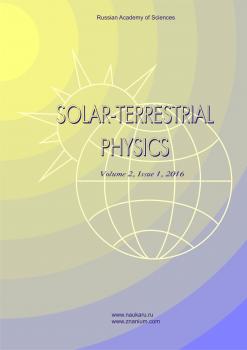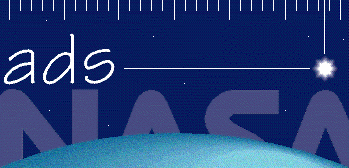Irkutsk, Irkutsk region, Russian Federation
UDC 533.9
UDC 523.9-48
UDC 537.52
As part of a brief review, a classification is made and information is provided about four experimentally discovered plasma effects, where unexpected behavior of the ionic component appeared and for which there is no unambiguous interpretation. 1. Ions with the highest energies for a quasi-neutral current sheet were recorded at the O-point (island) with the direction of their movement opposite to the electric field at the X-point. 2. In a self-sustaining discharge in crossed electric and magnetic fields (E×B discharge), a large number of ions (not the tails of the distribution function) with energies significantly exceeding the energies equivalent to the discharge voltage are generated. This occurs in a certain range of pressures of the plasma-forming gas and magnetic fields. 3. The discovered region of effective ionization — the “anode layer”, with increasing pressure, moves abruptly from one plasma region to another, which is accompanied by a jump in the ion density up to 16 times. An increase in the magnetic field induction causes, on the contrary, the “anode layer” to jump in the opposite direction with the ion density decreasing 3–4 times. 4. Ion distribution functions in the E×B discharge contain isomagnetic density jumps with a relative amplitude from ~30 to 80 % of the total current at the released energy. Taking into account the “anomalous” behavior of ions in the plasma of quasi-neutral current sheets and discharges in crossed electric and magnetic fields will provide further insight into the processes in space plasma, the physics of coronal heating, and the formation of the solar wind.
ion acceleration, quasi-neutral current sheet, discharge plasma in crossed electric and magnetic fields
1. Abolmasov S.N. Physics and engineering of crossed-field discharge devices. Plasma Sources Science and Technology. 2012, vol. 21, no. 035006. DOI:https://doi.org/10.1088/0963-0252/21/3/ 035006.
2. Altyntsev A.T., Lebedev N.V., Strokin N.A. Acceleration of ions in a current sheet with magnetic islands. Phys. Lett. A. 1988, vol. 129, no. 5-6, rr. 326-328. DOI:https://doi.org/10.1016/0375-9601(88)90342-8.
3. Altyntsev A.T., Lebedev N.V., Strokin N.A. Ion acceleration in a quasi-neutral current sheet. Planet. Space Sci. 1990, vol. 38, no. 6, pp. 751-763. DOI:https://doi.org/10.1016/0032-0633(90)90034-n.
4. Aschwanden M.J. New Millennium Solar Physics. Springer Cham: Switzerland AG. 2019. P. 714. DOI:https://doi.org/10.1007/978-3-030-13956-8.
5. Aschwanden M.J. Particle acceleration and kinematics in solar flares. A Synthesis of Recent Observations and Theoretical Concepts. Space Sci. Rev. 2022, vol. 101, pp. 1-227. DOI:https://doi.org/10.1023/A:1019712124366.
6. Bardakov V.M., Ivanov S.D., Strokin N.A. Advances and problems in plasma-optical mass-separation. Phys. Plasmas. 2014, vol. 21, no. 033505. DOI:https://doi.org/10.1063/1.4846898.
7. Bardakov V.M., Ivanov S.D., Kazantsev A.V., Strokin N.A. A noise-immune hardware-software complex for data acquisition and preprocessing in experiments on plasma-optical mass separation. Instruments and Experimental Techniques. 2015, vol. 58, no. 3, pp. 359-363. DOI:https://doi.org/10.1134/S0020441215030045.
8. Bardakov V., Ivanov S., Kazantsev A., Strokin N., Stupin A. “Super-acceleration” of ions in a stationary plasma discharge. Phys. Lett. A. 2016, vol. 380, no. 42, pp. 3497-3499. DOI:https://doi.org/10.1016/j.physleta.2016.06.028.
9. Bardakov V.M., Ivanov S.D., Kazantsev A.V., Strokin N.A., Stupin A.N., Jiang B., Wang Z. Anomalous acceleration of ions in a plasma accelerator with an anodic layer. Plasma Sci. Technol. 2018, vol. 20, no. 035501. DOI:https://doi.org/10.1088/2058-6272/aa97cc.
10. Biskamp D., Welter H. Coalescence of Magnetic Islands. Phys. Rev. Lett. 1980, vol. 44, no. 16-21, pp. 1069-1072. DOI:https://doi.org/10.1103/PhysRevLett.44.1069.
11. Borzenko V.P., Koshilev N.A., Parfenov O.G., Strokin N.A. Multichannel charge-exchange energy analyzer with high time resolution. Technical Physics. 1978, vol. 48, no. 6, pp. 1174-1177. (In Russian).
12. Cavalier J., Lemoine N., Bonhomme G., Tsikata S., Honore C., Gresillon D. Hall thruster plasma fluctuations identified as the E×B electron drift instability: Modeling and fitting on experimental data. Phys. Plasmas. 2013, vol. 20, no. 082107. DOI:https://doi.org/10.1063/1.4817743.
13. Choueiri E.Y. Fundamental difference between the two Hall thruster variants. Phys. Plasmas. 2001, vol. 8, no. 8, pp. 5025-5033. DOI:https://doi.org/10.1063/1.1409344.
14. Drake J.F., Swisdak M., Che H., Shay M.A. Electron acceleration from contracting magnetic islands during reconnection. Nature. 2006, vol. 443, no. 11, pp. 553-556. DOI:https://doi.org/10.1038/nature05116.
15. Dungey J.W. Conditions for the occurrence of electrical discharges in astrophysical systems. The London, Edinburgh and Dublin Philosophical Magazine and Journal of Science: Ser. 7. 1953, vol. 44, no. 354, pp. 725-738. DOI: 10.1080/ 14786440708521050.
16. Furth H.P., Killeen J., Rosenbluth M.N. Finite-resistivity instabilities of a sheet pinch. Physics of Fluids. 1963, vol. 6, no. 4, pp. 459-484. DOI:https://doi.org/10.1063/1.1706761.
17. Garrigues L., Coche P. Electric propulsion: comparisons between different concepts. Plasma Physics and Controlled Fusion. 2011, vol. 53, no. 124011. DOI:https://doi.org/10.1088/0741-3335/53/12/124011.
18. Giovanelli R.G. A theory of chromospheric flares. Nature. 1946, no. 4003, pp. 81-82. DOI:https://doi.org/10.1038/158081a0.
19. Giovanelli R.G. Chromospheric flares. Monthly Notices of the Royal Astronomical Society. 1948, vol. 108, no. 2, pp. 163-176. DOI:https://doi.org/10.1093/mnras/108.2.163.
20. Goebel D.M., Katz I. Fundamentals of Electric Propulsion: Ion and Hall Thrusters. John Wiley & Sons, Hoboken, New Jersey, 2008, p. 486. DOI:https://doi.org/10.1002/9780470436448.
21. Gopalswamy N., Yashiro S., Mäkelä P., Xie H., Akiyama S. The Common Origin of High-energy Protons in Solar Energetic Particle Events and Sustained Gamma-Ray Emission from the Sun. Astrophys. J. 2021, vol. 915, no. 82, pp. 1-9. DOI:https://doi.org/10.3847/1538-4357/ac004f.
22. Kaganovich I.D., Smolyakov A., Raitses Y., Ahedo E., Mikellides I.G., Jorns B., Taccogna F., Gueroult R., et al. Physics of EB discharges relevant to plasma propulsion and similar technologies. Phys. Plasmas. 2020, vol. 27, no. 120601. DOI:https://doi.org/10.1063/5.0010135.
23. Kasper J.C., Klein K.G., Lichko E., Huang Jia, Chen C.H.K., Badman S.T., Bonnell J., Whittlesey P.L., et al. Parker Solar Probe Enters the Magnetically Dominated Solar Corona. Phys. Rev. Lett. 2021, vol. 127, no. 255101. DOI:https://doi.org/10.1103/PhysRevLett. 127.255101.
24. Kim V., Kozubsky K.N., Murashko V.M., Semenkin A.V. History of the Hall Thrusters Development in USSR. Proceedings of the 30th International Electric Propulsion Conference IEPC-2007-142, Florence, Italy, September 17-20, 2007..
25. Kocharov L., Omodei N., Mishev A., Pesce-Rollins M., Longo F., Yu S., Gary D.E., Vainio R., Usoskin I. Multiple Sources of Solar High-energy Proton. Astrophys. J. 2021, vol. 915, no. 12, pp. 1-9.
26. Koshilev N.A., Masalov V.L., Strokin N.A., Shishko A.A. Measurements of the ion energy spectrum in a collisionless neutral current sheet. Sov. Phys. JETP. 1977, vol. 45, no. 6, pp. 1108-1113.
27. Loureiro N.F., Uzdensky D.A., Schekochihin A.A., Cowley S.C., Yousef T.A. Turbulent magnetic reconnection in two dimensions. Monthly Notices of the Royal Astronomical Society. 2009, vol. 399, no. 1, pp. 146-150. DOI:https://doi.org/10.1111/j.1745-3933.2009.00742.x.
28. Lu L., Li F., Warmuth A., Veronig A.M., Huang J., Liu S., Gan W., Ning Z., Ying B., Gao G. Observational signatures of tearing instability in the current sheet of a solar flare. Astrophys. J. Lett. 2022, vol. 924, no. L7. DOI:https://doi.org/10.3847/2041-8213/ac42c6.
29. Melrose D.B. Particle Acceleration Processes in the Solar Corona. Australian Journal of Physics. 1990, vol. 43, no. 6, pp. 703-754. DOI:https://doi.org/10.1071/PH900703.
30. Nakamura T.K.M., The W.-L., Zenitani S., Umeda T., Oka M., Hasegawa H., Veronig A.M., Nakamura R. Spatial and time scaling of coalescing multiple magnetic islands. Phys. Plasmas. 2023, vol. 30, no. 022902. DOI:https://doi.org/10.1063/5.0127107.
31. Parker E.N. Sweet’s mechanism for merging magnetic fields in conducting fluids. JGR. 1957, vol. 62, no. 4, pp. 509-520. DOI:https://doi.org/10.1029/JZ062i004p00509.
32. Potter M.A., Browning P.K., Gordovskyy M. Forced magnetic reconnection and plasmoid coalescence I. Magnetohydrodynamic simulations. Astron. Astrophys. 2019, vol. 623, no. A15. DOI:https://doi.org/10.1051/0004-6361/201833565.
33. Priest E., Forbes T. Magnetic reconnection. MHD theory and applications. Cambridge University Press: Cambridge. Great Britain, 2000, p. 600. DOI:https://doi.org/10.1017/CBO9780511525087.
34. Romadanov I., Smolyakov A., Raitses Y., Kaganovich I., Tian T., Ryzhkov S. Structure of nonlocal gradient-drift instabilities in Hall E×B discharges. Phys. Plasmas. 2016, vol. 23, no. 122111. DOI:https://doi.org/10.1063/1.4971816.
35. Shibata K., Magara T. Solar Flares: Magnetohydrodynamic Processes. Living Rev. Solar Phys. 2011, vol. 8, no. 6, p. 99. DOI:https://doi.org/10.12942/lrsp-2011-6.
36. Simmonds J., Raitses Y. Ion acceleration in a wall-less Hall thruster. J. Appl. Phys. 2021, vol. 130, no. 093302. DOI:https://doi.org/10.1063/5.0062607.
37. Strokin N.A., Bardakov V.M. Development of Idea of Plasma-Optical Mass Separation. Plasma Physics Reports. 2019a, vol. 45, No. 1, pp. 46-56. DOI:https://doi.org/10.1134/S1063780X19010148.
38. Strokin N.A., Kazantsev A.V., Bardakov V.M., Nguyen T.T., Kuzmina A.S. Jumping the anode layer in the zone of the EB discharge. Phys. Plasmas. 2019b, vol. 26, no. 073501. DOI:https://doi.org/10.1063/1.5093778.
39. Sweet P.A. The neutral point theory of solar flares. Electromagnetic Phenomena in Cosmical Physics. Proceedings of the International Astronomical Union. 1958, vol. 6, pp. 123-134. DOI:https://doi.org/10.1017/S0074180900237704.
40. Uzdensky D.A., Loureiro N.F. Magnetic Reconnection Onset via Disruption of a Forming Current Sheet by the Tearing Instability. Phys. Rev. Lett. 2016, vol. 116, no. 105003. DOI:https://doi.org/10.1103/PhysRevLett.116.105003.
41. Zhurin V.V., Kaufman H.R., Robinson R.S. Physics of closed drift thrusters. Plasma Sources Sci. Technol. 1999, vol. 8, no. R1-R20. DOI:https://doi.org/10.1088/0963-0252/8/1/021.

















